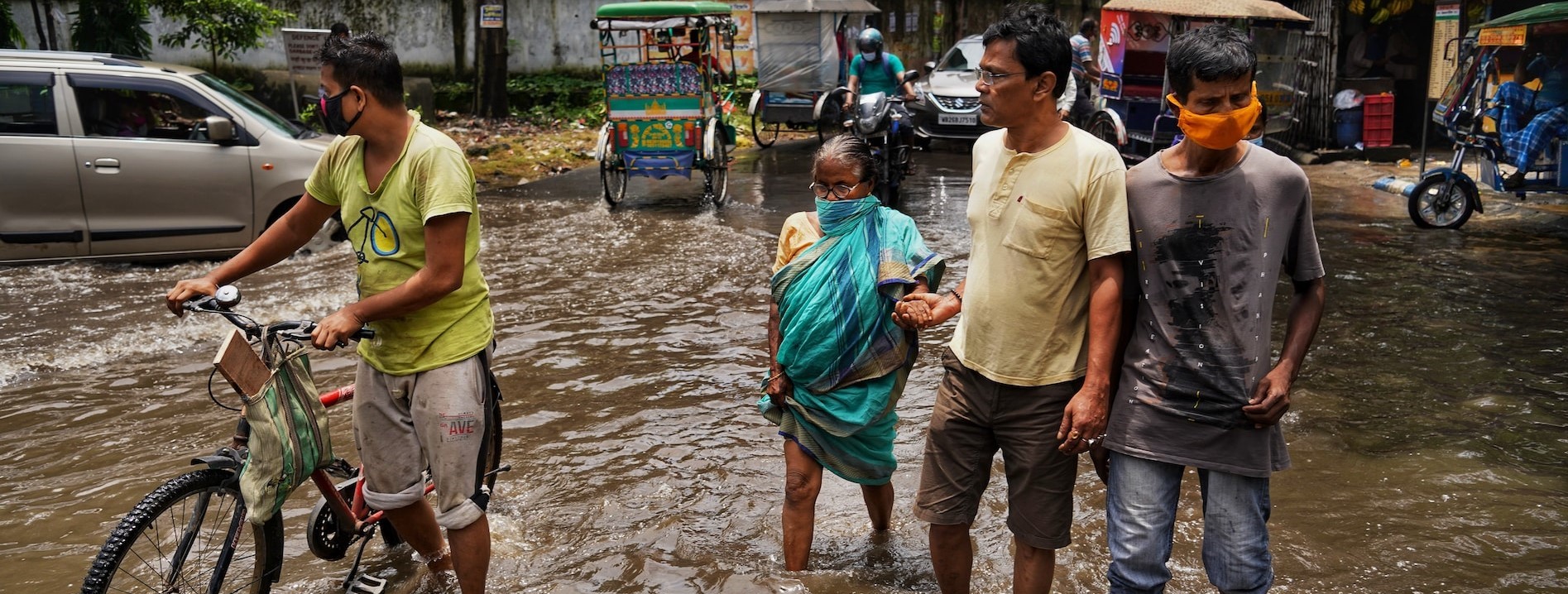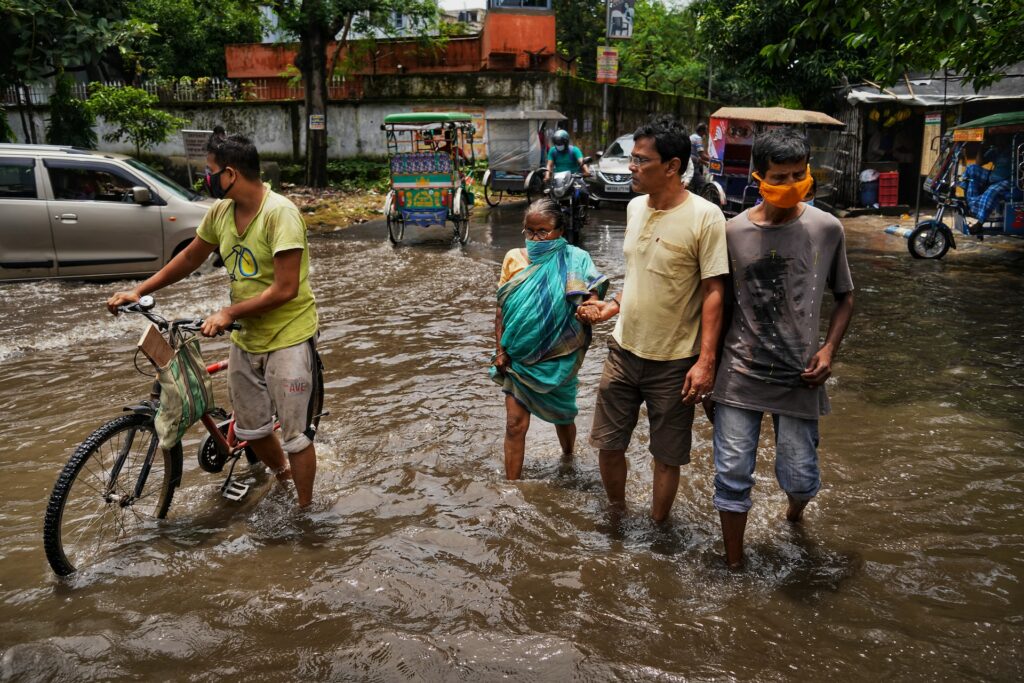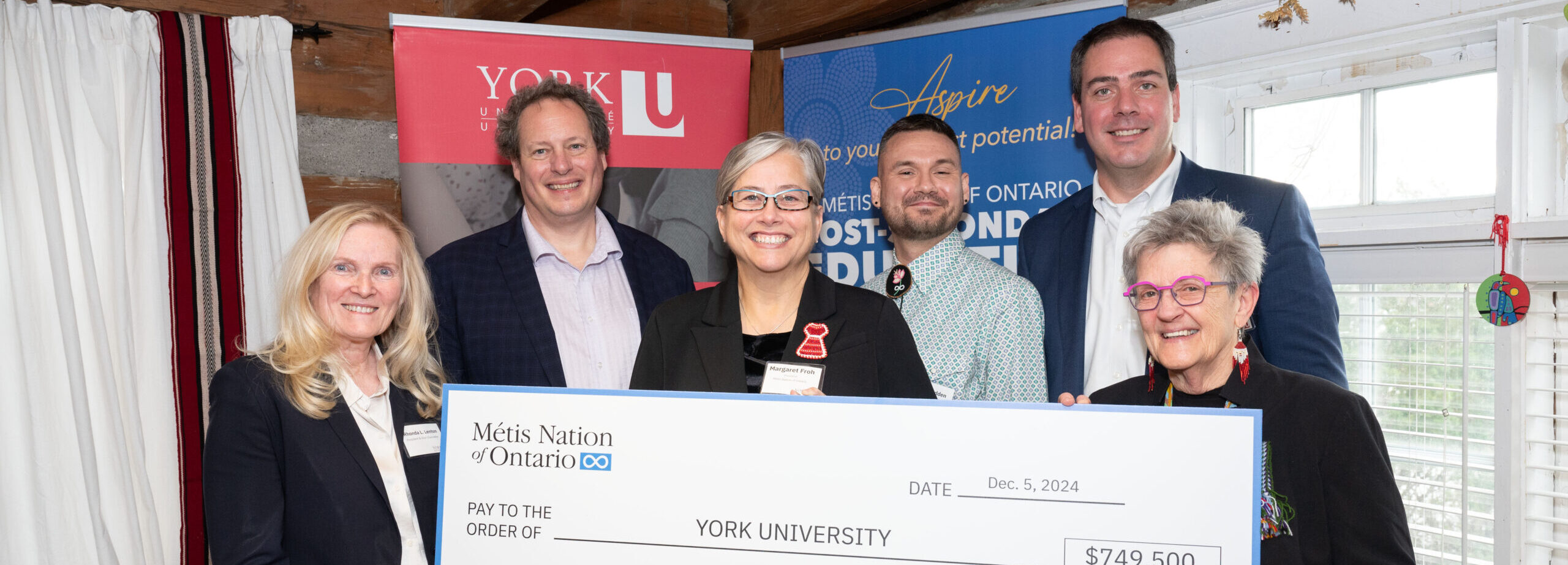
York University leads water sustainability event at United Nations High-Level Political Forum on Sustainable Development to discuss water crisis brought on by extreme climate events
TORONTO, July 13, 2023 – Extreme weather events linked to climate change are affecting water quality, quantity and sustainability for some of the world’s most vulnerable, but the United Nations and York University along with its partners are working toward solutions.
Join us Friday from 10 to 11:30 a.m. ET for a virtual event during the High-Level Political Forum on Sustainable Development with a panel discussion – “Humanitarian responses to emerging water crises as a result of extreme climatic events” in preparation for the UN Global Water Academy.
Women and marginalized communities are disproportionately impacted by freshwater insecurity. This panel (see speaker details below) aims to raise the voices of communities affected by water insecurity, including Indigenous communities in Canada, women and girls in Africa, and families living in refugee camps. They will explore the humanitarian responses, challenges, and solutions to alleviating the freshwater crisis, particularly in the face of global environmental degradation and extreme climatic events.

As York University will be the academic lead of the UN Global Water Academy being planned as a multi-stakeholder collaboration between the United Nations, academic institutions, and private sector partners, freshwater expert Sapna Sharma, York Research Chair in Global Change Biology in York’s Faculty of Science, will moderate the 90-minute panel with welcome and opening remarks from Nikhil Seth, executive director of the United Nations Institute for Training and Research (UNITAR) and assistant secretary-general of the UN, and Rhonda Lenton, York University president and vice-chancellor. Sharma will introduce how climatic extreme events are having effects on water quantity and quality, followed by the panel of speakers.
“Extreme climate events and water crises are complex, global, intersectional challenges that require collaboration across diverse perspectives to identify equitable and sustainable solutions,” said Lenton. “As a leading international teaching and research institution committed to serving the public good, I’m proud of York’s role with the future UN Global Water Academy driving the kind of lasting positive change needed to protect the future for people and the planet.”
The concept of the UN Global Water Academy evolved out of UNITAR’s participation in the March UN Water Conference. The goal is to collaborate across diverse perspectives and disciplines to identify solutions that will ensure the safety and wellness of us all, but particularly for at-risk populations, Black and Indigenous populations, women, children, and the Global South.
“Extreme climate events, including heatwaves, droughts, and storms, are not only getting more frequent, but also more intense and the most vulnerable are paying the highest price, especially when it comes to freshwater,” says Sharma. “One example is the association between extreme climatic events and changes in freshwater availability along with the degradation of water quality, including elevated concentrations of nutrients, contaminants of emerging concern, and potential for algal blooms, some of which may be toxic. Changes in the freshwater supply due to extreme climatic events can have catastrophic impacts, particularly during humanitarian crises, on the humans and wildlife who rely on freshwater for life.”
Speakers:
Dr. Jessica Vandenberghe, University of Victoria, will provide the historical Canadian context for Indigenous communities and challenges for Indigenous communities in accessing resources during water and humanitarian crises.
Ms. Swani Keelson, Global Water Promise, will highlight the plight of African girls and women affected by the intersection of the water, climate, and humanitarian crises through period poverty and the role of transactional sex.
Dr. Nicolas Jarraud, Global Water Partnership, will illustrate that women are disproportionately impacted by the water and governance crisis and discuss the Global Water Partnership's program elements for gender transformation.
Dr. Syed Imran Ali, York University, will speak about his ongoing work with artificial intelligence tools that can be used to deliver clean water in refugee camps.
Register for the webinar Humanitarian Responses to Emerging Water Crises as a Result of Extreme Climatic Events here: https://www.yorku.ca/dighr/events/humanitarian-responses-to-emerging-water-crises/






